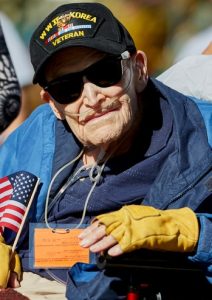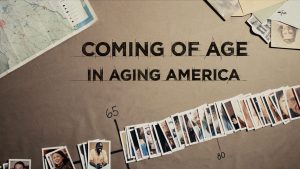Dad is Acting Really Strange

Q. My father has been acting rather strange, lately, and something is definitely not right. It’s not just that he is forgetting things. His memory seems intact, for the most part, although there have been a couple instances of concern. It’s the unusual behaviors that he is exhibiting that worry me and my mom the most.
For instance, the other day, we got a call from the security room at CVS. Dad stole six packs of gum, sticking them in his pockets. He used to be in law enforcement, and it is completely unlike him to do anything dishonest or unlawful, so we were shocked, to say the least. Another time, he forgot what a key was for and couldn’t figure out how to get into the house. He was pounding at the door, although he had his keys in his pocket the whole time. In addition, my mom says that he has been eating a lot more than normal, but he doesn’t seem to be gaining weight. He downed a meal yesterday that was supposed to be for the entire family.
I can’t imagine what could be going on with dad. He has a family history of Alzheimer’s. Could these odd behaviors have anything to do with it? I thought Alzheimer’s was just about forgetting things. Could it be the beginning of Alzheimer’s, or could it be something else? Thanks for any guidance you can provide.
—
A. We all have those scares when we lose our keys or forget names/dates and think it may be something more. In fact, alongside cancer, Alzheimer’s is the most feared disease in the USA.
While there currently is no cure for Alzheimer’s, it is still important to know some of the early signs of Alzheimer’s, because some of them may not be what you think.
Of course, the most common sign of Alzheimer’s is memory loss that disrupts daily life. And, it can take many forms. Some people experience confusion with time or place, difficulty planning, challenges with words, and/or poor judgment, among many other cognitive symptoms. But there are other less-obvious early signs that could tip you off that something’s up before Alzheimer’s progresses that far.
These are some of the surprising symptoms that may warn of the Alzheimer’s—and they don’t all involve memory problems:
· Stealing or other law-breaking activity: People’s executive function—their ability to make decisions—can be affected by Alzheimer’s, which may explain why they become unable to discern right from wrong.
· Frequent falling: A study of 125 older adults asked subjects to keep track of how often, over an eight-month time period, they fell or tripped. When researchers looked at the brain scans of those who fell most frequently, they saw a correlation between falls and the early onset of Alzheimer’s Disease. If you or someone you love is falling frequently, tell your doctor. It may be an indicator of a cognitive problem.
· Forgetting the function of objects: Can’t remember where you put your keys or cell phone? This happens to many of us, and it’s usually not a problem. Buy, if you can’t remember what a cellphone is for, or where food you are cooking is supposed to go, then you might be facing the first signs of Alzheimer’s or dementia.
· Sudden speech impairment: Speech is another part of the brain that is commonly affected even in the early stages of Alzheimer’s. Signs of speech impairment include having difficulty finding words, rambling, or use of convoluted language and long-winded explanations in order to explain things because he/she cannot find the “right words.”. Your loved one may also use substitute words which are either related (“tile game” instead of “Scrabble”) or words that sound similar (“bright” instead of “write”).
· Unfocused staring: With Alzheimer’s, your brain becomes unfocused. Staring in a detached way may be an early sign of so-called “tangles” in your brain.
· Forgetting how to do basic tasks, such as using the TV remote: Someone with early Alzheimer’s may have forgotten how to perform basic tasks such as dressing themselves or using electronic devices. Most often, this develops gradually, but in some cases this can be quite abrupt. It may be first evident in illegible handwriting, difficulty buttoning or fastening of clothing, or having difficulties with a TV remote.
· Eating inappropriate things or too much food: Some people actually eat inanimate objects or inedible items, such as paper, prior to their diagnosis, though researchers don’t know why. But since Alzheimer’s and dementia affect the brain’s memory, it may be because their brain receives hunger signals, but can’t discern how to react to them. Before the onset of Alzheimer’s, patients also tend to eat more—about 500 calories more per day—than their aging counterparts. And still, they tend to lose weight. Researchers feel that the change is likely metabolic.
· Inability to recognize sarcasm: If you fail to recognize sarcasm, or take it very literally and seriously, it may be a sign of atrophy in your brain. (We all miss it from time to time, of course, but if you consistently “don’t get it,” it could be a problem.) With Alzheimer’s, the brain’s posterior hippocampus is affected, which is where short-term memory is stored, and where one would sort out such things as sarcasm.
· Depression: If someone has never suffered from clinical depression in the course of their lives but develops it later in life (after age 50), it could be an early sign of Alzheimer’s. This doesn’t necessarily mean if you’re diagnosed with depression in older age, that you will develop Alzheimer’s or other cognitive decline, but it does raise the possibility that you might. One study showed that people who suffered from depression after age 50 were three times more likely to develop an Alzheimer’s-related disease.
These symptoms may signal Alzheimer’s Disease, but they may be the signs of other underlying conditions. Alzheimer’s is a debilitating disease that has significant mental and physical effects. By properly diagnosing it, caregivers and Alzheimer’s patients are in a better position to be cared for in an appropriate manner. And for those who don’t have it, diagnosis can ease lurking fears in the hearts of individuals and families alike.
A trained neurologist can usually diagnose Alzheimer’s or other dementias. See your doctor if you have concerning signs so that you can begin treatment. It may turn out that these symptoms are a sign of something else. But sharing them with a physician is the best thing you can do.
If You Suspect Your Loved One Could Have Alzheimer’s
Doctors can accurately diagnose Alzheimer’s or symptoms of one of the other forms of dementia in 90% of cases. If your father appears to be losing mental abilities to a degree that interferes with daily activities and social interactions, you should probably consult a doctor right away.
As you can imagine, persons with Alzheimer’s disease and their families face special legal and financial needs. Controlling the high costs of caring for a loved one with Alzheimer’s, and navigating the emotionally and physically demanding requirements of caregiving, require the assistance of a highly skilled and specialized expert in the field of Alzheimer’s Planning.
At The Farr Law Firm, we are dedicated to easing the financial and emotional burden on those suffering from dementia and their loved ones. We help protect the family’s hard-earned assets while maintaining your loved one’s comfort, dignity, and quality of life by ensuring eligibility for critical government benefits such as Medicaid and Veterans Aid and Attendance. Please call us as soon as possible to make an appointment for a no-cost consultation:
Fairfax Alzheimer’s Planning: 703-691-1888
Fredericksburg Alzheimer’s Planning: 540-479-1435
Rockville Alzheimer’s Planning: 301-519-8041
DC Alzheimer’s Planning: 202-587-2797
Critter Corner: Can Poor Sleep Cause Alzheimer’s?

Dear Ribbit
I have been an insomniac for most of my adult life. Now, I hear that poor sleep can cause Alzheimer’s. Is that true?
Anita Moore-Sleep
—-
Dear Anita
Similar to your situation, 1 in 3 Americans don’t get enough sleep, and 45% of the world’s population doesn’t either.
According to the US Centers for Disease Control and Prevention, this is a “public health problem,” because disrupted sleep is associated with a higher risk of diabetes, stroke and cardiovascular disease. Now, you can add Alzheimer’s to that list.
Research in both mice and humans shows that disturbed sleep leads to higher levels of the protein believed to be responsible for Alzheimer’s. The study, published in the journal, “Neurology,” looked at the relationship between sleep quality and levels of various proteins and inflammatory markers in 101 cognitively healthy adults with an average age of 63. All participants had known risk factors for Alzheimer’s, such as family history or evidence of the Alzheimer’s gene, which is associated with a greater chance of developing the disease. Their sleep quality was rated on a scale that measured amount, quality and trouble sleeping, along with daytime drowsiness and naps.
“Participants in our study were willing to undergo a lumbar puncture to move research on Alzheimer’s disease forward,” said co-author Barbara Bendlin of the Wisconsin Alzheimer’s Disease Research Center. “Analyzing this fluid allowed us to look at markers related to Alzheimer’s disease such as plaques and tangles, as well as markers of inflammation and nerve cell damage.”
Keith Fargo, director of scientific programs and outreach for the Alzheimer’s Association believes that, “(t)his new study suggests there may be an opportunity to improve cognition and possibly reduce Alzheimer’s risk through early diagnosis and effective treatment of sleep disorders.”
Don’t despair, however. “Not everyone who experiences sleep problems should now worry about developing Alzheimer’s due to Alzheimer’s disease,” researchers said, adding that “there is not yet a clear cause and effect relationship.”
For tips to help you sleep, check out this article.
Hope this is helpful,
Ribbit
This Can Be as Damaging to Your Health as 15 Cigarettes Per Day

Erica and her husband, Russ, go to the local diner sometimes for breakfast. The past couple of times they were there, they noticed a senior man sitting alone. The man proudly wore a WWII veteran hat.
One morning, Russ, who is a history-buff, struck up a conversation with the veteran. He and Erica introduced themselves and thanked him for his service. The man smiled and invited them to join him for coffee. After a long and engaging conversation, Erica and Russ realized that the veteran lived alone and had no family, and not many friends, and that he was lonely. Erica and Russ were saddened about the friendly veteran’s loneliness. They wrote their phone numbers on a piece of paper and urged the man to call them for anything he may need. Two weeks went by and he called to ask for a ride to the doctor. Since then, he has become a close family friend, attending Erica and Russ’s son’s ball games, and joining them for movies and meals. He has brought so much joy into Erica and Russ’ family’s lives and their children have learned so much from their new octogenarian, WWII hero friend.
Many older Americans, similar to the veteran in our example, are living alone, lacking contact, and suffering from social isolation. Others may be married but have left the workforce, have close, long-time friends who have moved or gotten sick, act as a family caregiver or they or a spouse have mobility or cognitive issues. Loneliness is serious. In fact, research studies reveal that lacking social connections can be as damaging to health as smoking 15 cigarettes per day! The following happens to older adults when they are lonely:
· They feel less healthy. In a recent report from AARP, 19% of people ages 62-92 are lonely and rate their health as worse than the non-lonely group, but effects go well beyond self-perception. The lonely group, according to the study, was more likely to be impaired in their ability to conduct activities of daily living, including dressing, bathing, feeding, or toileting.
· Loneliness can be a predictor of cognitive decline. Loneliness, rather than living alone, may be linked to a 64% greater risk for dementia. In a University of Chicago analysis by Louise Hawkley & John Cocioppo to consider the effects of loneliness and social isolation, the author concluded: “Feelings of loneliness at age 79 predicted ‘lifetime cognitive change.” Other studies have also indicated that loneliness is a precursor of cognitive decline.
· Loneliness can shorten a lifespan. In a University of Chicago study, researchers conducted a study that concluded “for older adults, perceived social isolation is a major health risk that can increase the risk of premature death by 14%.” In Florida, 20% of the state’s population is age 65+, which is the highest percentage in the US. In 2015, there were 3,152 suicides, with 44% (1,401) of them aged 55+, including 425 individuals who were aged 75+
How You Can Help a Loved One or a Community Member
While loneliness is on the rise, it does not have to be permanent. Here are some strategies loved ones can use to reduce the experience and impact of loneliness:
· Help older adults make plans to be with other people. The concept seems simple, but in reality, it is difficult to engage those who need engagement most. To help a lonely senior, identify support programs, senior communities, and/or church-related offerings, and see if any of them offer opportunities to meet other people.
· Rethink housing. New approaches for boomers and seniors are blossoming throughout the US. These include shared housing with housemates, co-housing with occasional communal meals, and informal daily interaction. Initiatives are emerging that encourage aging in place while being part of a neighborhood Village. Services are also offered within a naturally occurring retirement community (NORC). There are also communities where boomers and elders move to support a social mission or benefit from the presence of a college or university.
· Locate and encourage intergenerational activities. Seniors should be encouraged to participate in intergenerational activities to boost sense of purpose and knowledge sharing. These programs can be formalized (like reverse mentoring 4H programs) or informal.
· Encourage interaction with pets – their own or others. The data is compelling — older adults have fewer health issues when they have regular interaction with pets. Even robotic pets, such as Hasbro’s Joy For All line of cats and dogs can soothe an older adult who is anxious and/or lonely.
· Find social media and online classes. Many communities offer lifelong learning programs that can help seniors gain online access or make better use of technology. Programs such as SeniorNet, regional AARP TEK programs, Osher Lifelong Learning at George Mason University, and others can help seniors boost tech confidence. Once gained, they can enjoy use of tools like Facetime, Skype, email, and photo sharing to keep social connections strong and nurture new connections.
Initiatives to Mitigate the Risks of Loneliness and Social Isolation
Being both socially isolated and lonely are problems that are rising to the top of age-related health issues, and concern is growing about the public health implications of this trend. At the April 2017 Senate hearing titled, “Aging without Community,” the physical outcomes of loneliness and social isolation were compared to smoking, obesity and cancer. At that hearing Senator Susan Collins said: “Just as we did when we made a national commitment to cut smoking rates in this country, we should explore approaches to reducing isolation and loneliness. Each has a real impact on the health and well-being of our seniors.” As the statistics multiply and the concern grows, leaders in the public and private sectors have launched initiatives to combat loneliness and isolation. They include:
· Campaign in the community. AARP Foundation and the Area Agencies on Aging recently launched a campaign to help combat social isolation. The ongoing Connect2Affect initiatives and series of resources, reports, and activities were a direct outcome of that campaign. These include research about social isolation, stories (and videos) and various ways to become involved.
· CareMore Campaign. Anthem Insurance has launched a campaign to fight the health issues resulting from loneliness, calling it “Be in the Circle: Be Connected.” To lead the way, the insurer appointed a “Chief Togetherness Officer” to rally and train the staff on the program and outcome measurements.
· Communication. Organizations such as the National Council on Aging (Benefits Call Center Training) and technology organizations such as GreatCall provide specific training programs to tailor service response to older adult callers.
· Social media utilization. Being part of an online community can help older adults feel more connected to family members they may not see regularly – enabling them to be better in touch and feel connected. One small study indicated that access to Skype and Facebook could result in improved health for the surveyed older adults.
Visit Your Loved Ones, Friends, or Neighbors
When you visit someone who doesn’t get regular visitors (even when he or she has Alzheimer’s or some other form of dementia) you may have impacted that person in a major way, especially if he or she is lonely and/or feeling isolated or depressed. The feelings you create by showing you care can change how he or she interacts with others and improve his or her mood. Remember, the benefit of your visit (or a call, if you cannot visit) will likely last, so call and visit senior loved ones whenever you can.
If you have a senior loved one who lives alone, or even for yourself, it is always prudent to plan ahead in the event that assisted living or nursing home care is needed in the future.. Life Care Planning and Medicaid Asset Protection is the process of protecting your assets from having to be spent down in connection with entry into a nursing home, while also helping ensure that you or your loved one get the best possible care and maintain the highest possible quality of life, whether at home, in an assisted living facility, or in a nursing home. As always, please contact us when you’re ready to make an appointment for a no-cost introductory consultation:
Fairfax Elder Law: 703-691-1888
Fredericksburg Elder Law: 540-479-1435
Rockville Elder Law: 301-519-8041
DC Elder Law: 202-587-2797
When Your Adult Child Is a Financial Train Wreck

Q1. My husband and I are parents of three. Our older daughter, Amanda, who lives close by with her family, has a stable job, and is fiscally responsible. Our son, Joseph, is almost done with medical school, and is also responsible when it comes to money. The one who we worry about is our middle child, Rachel. She is a spendthrift, who isn’t good about paying her bills and lives way beyond her means. She recently got evicted from her apartment for not paying her rent and had to move into our basement. It’s been six months and she hasn’t gotten a job yet, but says she is looking.
My husband and I have no problem helping Rachel out, since she is our daughter and we love her. However, if we keep supporting her completely, it will derail our own retirement plans. Also, our other two children are beginning to express their feelings of resentment and concern. How do you suggest we set limits and cut her off when the time comes, while still helping her get back on her feet?
Q2. We’re also getting ready to do our own estate planning documents. We feel like Rachel will need more money than the other two children, but want to be fair, and don’t want to keep enabling her. How do you suggest we proceed fairly in this situation? Thank for your help!
—–
A1. Giving adult children money is quite common in the U.S. In fact, six out of 10 parents with adult children said they have given their children financial help in the previous 12 months, according to a Pew Research Center survey.
What many parents that help their children don’t realize, however, is that the toll can be steep. Supporting able-bodied children or repeatedly bailing them out of debt creates dependency when parents should help them become self-sufficient. Helping an adult child too much can:
· Delay or derail the parents’ retirement;
· Fuel sibling resentment and family discord and, in certain situations;
· Enable dangerous behavior, including addiction or untreated mental illness.
In many situations involving money (which may or may not be the case with your daughter), parents are enabling their children, and the children have no incentive to change. However, parents can set limits and should communicate those limits to their adult children. Here’s what planners advise:
- Figure Out What You Can Afford: What would happen if you continue helping your daughter at your current level? You may need to wait longer than anticipated to retire. To play it safe, if you can’t agree on how much you can financially assist your daughter, enlist a third party such as a retirement planner, accountant, or even a therapist to help.
- Set Expectations: Be clear with your daughter about how you can and cannot help. If she isn’t genuinely trying to be self-sufficient, perhaps any help you give should have an expiration date. If she needs basic budgeting help, credit counselors can offer advice, classes, or debt-management plans.
- Set and Communicate Limits: Set limits on how much you are willing to give your daughter and for how long. It’s good to qualify assistance with some boundaries and parameters that assist the child temporarily and also do not cause undue burden on the parents’ situation. It’s important to establish these very early on and set a precedent in the beginning, so everyone is on the same page.
- Target Your Help: Handing over cash to irresponsible adult children is typically a bad idea. Instead, parents should direct the money toward something specific, such as paying the mechanic for a car repair or taking over certain bills, planners say.
- Consider Your Other Kids: Money shouldn’t equal love, but it often does in the siblings’ minds when financial help is doled out unequally. Siblings also may worry they’ll have to support the parents or the financially irresponsible child someday, which adds to their resentment. Knowing the parents have a plan to wean that person, or some kind of a figure where they’ll stop giving, can ease the situation.
Once you have decided the gravy train must stop, clear communication with your daughter is key. Most kids don’t realize how much the support they receive is costing you because you’ve probably never told them. Be honest about the impact. Let her know there is no trust fund, and that you are making real tradeoffs to support her. That usually accelerates the time frame.
Remember, one of the benefits of supporting adult kids is that parents and offspring often end up talking more about money than might otherwise be the case, sparking topics such as what it takes to run a household, how to stay out of debt, and how to advance in your career. Keep those discussions going even after you’ve shut down the Bank of Mom & Dad. You might also treat them to a session with a financial adviser or introduce them to tools that can help them manage their money at sites like mint.com, budgettracker.com, budgetpulse.com, and learnvest.com.
Should you ever want expert guidance with your financial planning process, remember that qualified assistance is available right here at the Farr Law Firm. Our team looks forward to helping you – no matter where you’re at in your financial journey! Call us to make an appointment.
A2. Ways to Minimize Conflict: What You Can Do
It’s understandable if you don’t want to see your grown child in a financial bind. But, playing financial favorites, even for a good reason, can have unintended consequences. Money inequality among siblings — perceived or otherwise — can introduce even further complexity, affecting relationships. Here are some things you can keep in mind when doing your estate planning documents, in an effort to minimize conflict among your children.
1. Leave to children equally: Treat children equally. Unequal allocation can be seen as a showing of favoritism that will cause resentment and hurt feelings. To avoid fighting, don’t penalize successful children by leaving more to their needy siblings, or conversely, reward successful children because they are favored. An exception for this general rule is for children who are disabled.
2. Be detailed about your plans: Taking the approach that “my children will figure all this out” without you providing detailed instructions in your estate plan will not lead to a harmonious distribution of your assets. While your children may not be satisfied with the choices you’ve made, they will be less likely to blame their siblings because they’ll know the allocations were what you wanted.
3. Update your estate plan regularly: Make estate planning changes when there has been a change of circumstances, especially after a divorce. Additionally, estate planning should be reviewed after other life changes, such as the death or divorce of a child or the illness, addiction, or incapacitation of any beneficiary.
4. Include a letter to your children: This letter is not to say who gets what; that should be outlined in your legal documents. This letter is to tell your children you loved them and tried your best to be fair in the estate planning process. It can go a long way in reminding them to move past the fact that they didn’t get the clock they wanted from your estate. Remind them in this letter that family goes a lot deeper than possessions and that you hope they will remember that fact.
5. Consider putting someone who isn’t a family member in charge of the assets: Having a third party in charge (such as a law firm or trust company), even if they charge a fee, will eliminate the risk of creating family disharmony. Everyone may end up being mad at the third party, but at least they are not mad at each other. That may be money well spent to preserve family unity.
By using some of the recommendations above when planning your estate, you will be more likely to protect your most important legacy — your family!
Dealing with the Conflict
Disputes about money and inheritances can be ideal cases for family mediators, social workers, or Aging Life Care Expert who may help get past long-standing emotional roadblocks, family competition, controlling behavior, denial, or other issues interfering with successful resolutions.
Family meetings are also a way for siblings, parents, and other concerned relatives or friends to try to clarify the situation, work out conflicts and set up a care plan that, ideally, all can agree upon. Although emotions might run high, it’s possible to conduct a productive meeting by setting an agenda and keeping to it, giving everyone a chance to speak, and including the professional assessment and recommendations as part of the discussion.
Estate Planning is Important for ALL Families
At the Farr Law Firm, we have strategies in place to help all types of families plan for themselves and their loved ones. With advance planning, each person, regardless of their family situation, can retain the assets it has taken a lifetime to accumulate and the peace of mind that their child(ren)’s needs will be adequately and properly addressed. If you or members of your family have not done your estate planning, or not had it reviewed and updated in the last five years, please contact us as soon as possible to make an appointment for a no-cost consultation:
Fairfax Estate Planning: 703-691-1888
Fredericksburg Estate Planning: 540-479-1435
Rockville Estate Planning: 301-519-8041
DC Estate Planning: 202-587-2797
Critter Corner: The Benefits of Pet Therapy
Welcome to the Farr Law Firm! I saw you the last time I came to the office, and you were so friendly and comforting. So, I figured you would know a little something about pet therapy. I was wondering, what are the benefits of pet therapy? Thanks for your help!
—–
Dear Teri,
Pet therapy is a broad term that includes animal-assisted therapy and other animal-assisted activities. Animal-assisted therapy is a growing field that uses dogs, cats, bunnies, or other animals to help people recover from or better cope with stress, or health problems, such as heart disease, cancer and mental health disorders.
Imagine you’re stressed or sick. I’m sitting in your lap and you’re petting me and you realize you’re smiling. You suddenly feel a little less tired and a bit more optimistic. You can’t wait to tell your family all about that charming cat. In fact, you’re already looking forward to petting me again. That’s the therapeutic effect pets have on people. Here are some other benefits of pet therapy:
For mental health:
• Decreases isolation and depression;
• Causes many to feel calm;
• Bridges communication gaps;
• Provides comfort;
• Reduces boredom;
• Lowers anxiety and decreases agitation;
• Creates motivation for the client to recover faster;
• Reduces loneliness;
• Increases socialization / encourages communication;
• Helps improve focus;
• Can bring someone back to the present;
• Provides inner contentment that may not be verbally expressed, but can be seen in eating better, sleeping better, and greater cooperation.
• Diminishes emotional pain in seniors.
For physical health, the act of petting, holding, or cuddling with a loving pet:
• Produces an automatic relaxation response;
• Stabilizes blood pressure;
• Reduces the risk of heart disease, heart attacks, and stroke;
• Improves cardiovascular health;
• Slows breathing in those who are anxious;
• Releases many “feel-good” hormones, having a similar effect as eating chocolate;
• Diminishes overall physical pain;
• Provides motivation to move more, stretch farther, and exercise longer; and
• Helps maintain and increase motor skills.
Be sure to come back and pet me or one of my therapy pet siblings soon! I also love to to be held and cuddled!
Purrs,
Beb
About Bebe: BeBe is a 17-year-old cat that Evan and Jeannie Farr adopted from the Fairfax County animal shelter in 2011. He is a loving lap cat who gets along with all people and all animals. When not in the office, he can be mostly found cuddling in Evan or Jeannie’s lap or snuggling next to them on their couch at home.
Coming of Age in Aging America: What Happens When Half of the Population is Over 50?

What will it mean for us all to grow up, live, and age in a society where half the citizens are over the age of 50? This has never been our reality, but we are getting closer. We are an aging society, and the graying of our citizens isn’t temporary—it is a permanent historic transformation.
We are beginning to undergo a demographic shift in the history of our country, where we’ll have a lifespan 20 years longer than our parents or grandparents. This is huge. What do you do with those 20 years? What does that 20 years mean? Coming of Age in Aging America is a PBS documentary broadcast and public engagement project that urges a national conversation about our new reality on how institutions can adapt to a graying society where people are living longer.
In Coming of Age in Aging America, characters, stories and revealing new research carry the central themes of work, community and intergenerational relationships. The film explores a Georgia community that is redesigning itself; a large medical system remodeling its work environment under the banner of ‘A Life Well-Lived’ to retain older workers and invite younger ones; and a classroom of young college students as they begin to grapple with the idea of longer lives – intellectually and emotionally.
These are some of the main themes explored by the documentary:
- It’s about the structures: An aging society is not just about its people. It is about structures and the homes and families and the infrastructures (such as the transportation infrastructure) that all of us rely on but were built for a different demographic.
- Aging is not only individual, it’s societal: Rather than looking at aging as an individual predicament, the documentary makes connections to social policies and institutions, tackling topics such as how we work and where we live and how those arrangements could—or should—be updated to meet the current reality.
- The segment titled, “How We Work” looks at the way jobs and the workplace are changing (and must change) as the nation’s older population grows. These modules tell individual stories while delving into larger questions, such as the new norm of delayed retirement. Today, three out of four Americans 50 or older say they expect to go on working well beyond the traditional retirement age; one in five who have passed that age are still on the job. Before an extended work life becomes something to look forward to, society’s expectations about later life must change, along with business practices, social policies, and attitudes toward aging.
According to Christine Herbes-Sommers, the film’s producer, the interesting thing about the film is that “the most startled audience has always been young people — 16 to 25 year olds — who come up and say, ‘I never thought of that’ or ‘maybe I should be saving for my retirement now.’”
Herbes-Sommers expects Coming of Age in Aging America to be her last film, but she is about to launch a multiyear engagement project with partner institutions, such as the Stanford Center on Longevity and Temple University’s Communities for All Ages program, to develop plans for action to improve the way we live now that so many of us are living longer.
The animated trailer for Coming of Age in Aging America, called The Big Idea in 4 Minutes, is already getting a lot of play at conferences on aging and can be viewed here. Coming of Age in Aging America will be available here to view for free until August 1, using the password Aging. To get the dialogue started, the project also created an interactive website that focuses on the same urgent issues, and has mounted an ambitious campaign to engage the public in discussions about what it means to age in an aging world.
What if you lived 20 years longer than you ever expected?
Want to live longer? Most people do! You can’t do anything about genetics, unfortunately, but to better your own odds of living longer, focus on what you can do to be healthier, such as eating healthy, exercising, and minimizing stress. As you are taking care of yourself and enjoying your life, it is also a good idea to plan for your future and for your loved ones. Our firm is dedicated to helping protect seniors preserve dignity, quality of life, and financial security. If you have not done Incapacity Planning, Estate Planning, or Long-Term Care Planning (or had your Planning documents reviewed in the past several years), or if you have a loved one who is nearing the need for long-term care or already receiving long-term care, please call us to make an appointment for a no-cost consultation:
Fairfax Elder Law Attorney: 703-691-1888
Fredericksburg Elder Law Attorney: 540-479-1435
Rockville Elder Law Attorney: 301-519-8041
DC Elder Law Attorney: 202-587-2797
How Does Medicare Work When You Have Existing Coverage?

Q. I love my job, and don’t have any plans to retire anytime soon, unless my wife insists on me doing so, so we can travel. We are both turning 65 this year, and will be eligible for Medicare soon. Since Medicare is health insurance, and I already have health insurance through my job for both of us, do you know how it works for people in our situation? My HR department didn’t know anything about Medicare when I asked them. Thanks for your help!
A. Medicare is the federal government health insurance program for people age 65 and older, and for people with disabilities. It can often be challenging to figure out how Medicare benefits work with existing health benefits and, even employers often don’t have all the answers.
It is important for people to understand their rights and know when they need to enroll in Medicare. Many people do not know when they should sign up for Medicare benefits, do not get accurate advice, or do not enroll at the right time. As a result, they are faced with financial consequences or significant gaps in health insurance coverage.
Below are instances that may apply to your situation, from the experts at Medicare.gov:
If You Work for a Small Employer. . .
If you work for a small employer with fewer than 20 employees (fewer than 100 employees if you are under 65 and disabled) and become eligible for Medicare, you should take Medicare. Medicare will be the primary insurer and your employer’s insurance will be the secondary insurer.
Medicare Part A (hospital insurance) is usually free and Part B (medical insurance) charges monthly premiums. In most cases, if you don’t sign up for Part B when you’re first eligible, you’ll have to pay a late enrollment penalty. You’ll have to pay this penalty for as long as you have Part B. Your monthly premium for Part B may go up 10% for each full 12-month period that you could have had Part B, but didn’t sign up for it. Also, you may have to wait until the General Enrollment Period (from January 1 to March 31) to enroll in Part B. Coverage will start July 1 of that year.
If you are part of a high-deductible health plan and have a Health Savings Account (HSA) to pay for medical expenses, you can no longer contribute to your HSA if you enroll in Medicare Part A and/or B. You may, however, continue withdrawing money from your HSA after you enroll in Medicare to pay medical expenses.
If You Work for a Large Employer. . .
If you are currently working at a company with 20 or more employees (100 employees or more if you are under 65 and disabled), then you can wait to sign up for Medicare Part B. This is because your employer’s group insurance can still be your primary payer. You will be given a Special Enrollment Period (SEP) to enroll in Part B without penalty while you’re still working and for up to eight months after you retire or lose your current employer coverage. It’s important to enroll before the deadline so you do not have any periods of time without coverage.
If You Are Self-Employed. . .
If you are self-employed and have an individual policy, then you should take Medicare. Keep in mind that if you have dependents that are being covered by your individual policy that are not eligible for Medicare, dropping your policy may affect their benefits.
If you are self-employed and have insurance through a group health plan, then whether you need Medicare depends on the size of your group health plan. If your insurance is through a group health plan with 20 or more employees (100 employees or more if you are under 65 and disabled), then you can wait to sign up for Part B because the group insurance is primary to Medicare.
If your insurance is through a group health plan with fewer than 20 employees (fewer than 100 employees if you are under 65 and disabled), then this insurance is secondary to Medicare. In this situation, you should not wait to sign up for Medicare Part B because you will be penalized as stated above.
If you are in a group health plan that is part of a multi-employer plan or association, such as the National Association for the Self-Employed, that offers group health plans to its members, then the size of the largest employer within the multi-employer plan determines whether that insurance is primary or secondary to Medicare.
Medicare does care about long-term care
Whether Medicare is your primary or secondary health insurance, please know that Medicare (and, for that matter, employer health plans) do not pay one penny for long-term care. Medicare and private health insurance ONLY pays for short-term therapy and skilled care in a nursing home for up to 100 days. For long-term care, the main government benefit is Medicaid, but there are strict and very complex financial requirements that must be met in order to qualify for Medicaid, including the requirement of having less than $2,000 of countable assets to your name. However, with proper Medicaid asset protection planning, almost everyone can eventually qualify for Medicaid when needed, without having to be broke or to first spend down your life savings. If you have a loved one who is nearing the need for long-term care or already receiving long-term care, please call us to make an appointment for a no-cost initial consultation:
Fairfax Medicaid Planning: 703-691-1888
Fredericksburg Medicaid Planning: 540-479-1435
Rockville Medicaid Planning: 301-519-8041
DC Medicaid Planning: 202-587-2797
Critter Corner: Questions to Ask About Medicare if You Have Other Insurance Coverage

Dear Baxter,
I am turning 65 this year, and will be eligible for Medicare soon. However, I still work and have insurance through my job. I am unsure how things work in this situation, and although I have read about it, I need more information before making any decisions. I want to call Medicare and talk to my HR person, as well, but don’t know exactly the right questions to ask them. Can you provide sample questions for me to ask when I call? Thanks in advance for your help!
Khan Fused
—
Dear Khan,
Whether you are enrolling into Medicare, or delaying enrollment, it is important that you ask the right questions. Remember, Medicare coverage is divided into two parts: Part A (hospital insurance), which is usually free and Part B (medical insurance), which charges monthly premiums. Most people do not delay Part A enrollment. Some delay Part B enrollment, depending on how they are insured. Asking the right questions means you will be less likely to have gaps in coverage or penalties.
Below are some sample questions you can ask:
- Will my current insurance coverage allow me to delay Medicare enrollment?
- When should I enroll into Medicare if I am delaying now?
- How will delaying enrollment now affect when I can enroll into Medicare in the future?
- How will delaying enrollment now affect my Medicare premium later?
You can contact Medicare by calling a Medicare customer service representative at 1-800-MEDICARE (1-800-633-4227) or by using the online Live Help Chat at mymedicare.gov. You’re having issues signing into MyMedicare.gov You can also use the Frequently Asked Questions (FAQ) on the Medicare website to find a quick response for answers to some questions you may have.
Hope this helps you find out the information you need!
Baxter
Aging On-Demand: Options for Seniors and Caregivers

Jan lives in the same townhouse complex as her mother, Sarah. Jan works in D.C. part-time, and visits her mother every evening, bringing her dinner and helping wherever she needs assistance. Jan is fortunate to have the flexibility to work at home a couple times a week, so she can drive her mom to appointments.
Jan recently got promoted, and has a new boss who wants her to physically be in the office more often. As part of her new role, she has been asked to attend several out-of-town conferences a year. Jan loves her job and is excited about her new opportunity, but is concerned that she can’t be there as much for her mother. She needs to find options to help her mother, and is intrigued by some of the on-demand services she can take advantage of to help when she cannot be there herself.
Are you a part-time or long-distance caregiver, like Jan? If so, then on-demand services may be of use to you and your senior loved one. On-demand services typically match providers with customers based on need and proximity. Apps are available to help you find the services you need and make arrangements for them when they are needed. For example, apps can help you get advice from a nurse, have food delivered, or get a ride to a doctor’s appointment, whenever needed.
There’s the app for that
On-demand services are a growing solution that are both practical and affordable. Knowing that help is just a click away is a huge relief to family members who can’t be there all the time. Below are some areas in which on-demand services are being offered for seniors and their caregivers:
Healthcare: Several startups have launched with the mission of bringing the on-demand model to elder care. HomeHero, based in Los Angeles, recently announced a program which facilitates transferring patients from the hospital to home with the help of a HomeHero caregiver. Hometeam, headquartered in New York, currently has at least 1,000 caregivers providing services in four east coast states.
Honor, in San Francisco, raised $20m in its first round of funding, and has established partnerships with the American Cancer Association and the National Parkinson’s Foundation (NFP). The company connects nonmedical, in-home caregivers with physically and mentally impaired seniors. The company vets applicants, and only accepts state-certified home health aides, nursing assistants, licensed vocational nurses, and people with recent senior caregiving experience. It also checks driving and criminal records. Before starting work, each applicant is registered with the state’s Department of Social Services. Seniors, or responsible family members, search for caregivers much in the way they might find a compatible date.
Driving:
In the Metro DC area, MetroAccess is our region’s complementary paratransit service, offered in accordance with the Americans with Disabilities Act (ADA). MetroAccess is a shared-ride, door-to-door, paratransit service for people whose disability prevents them from using bus or rail. The service provides daily trips throughout the Transit Zone in the Washington Metropolitan region. Rides are offered in the same service areas and during the same hours of operation as Metrorail and Metrobus. MetroAccess is a service of the Washington Metropolitan Area Transit Authority (Metro). Read more about it on their website and in our blog post on transportation options in the DC area.
Ride-hailing services Uber and Lyft are addressing senior transportation with new initiatives.
For seniors who need extra assistance, Uber offers uberASSIST. This service uses drivers who are trained to help riders get into and out of the vehicle and can accommodate folding wheelchairs, walkers and scooters. Uber also offers uberWAV with wheelchair-accessible vehicles, though availability appears to be limited.
Given that seniors with limited transportation options might need to use ride-hailing often, Uber has been working to develop partnerships with local senior advocates, organizations, and municipalities around the country with the goal of increasing affordability. In many cities, programs are being tested in which seniors can get discounted — or even free — rides due to city support.
Lyft, meanwhile, has been partnering with senior housing operators, including Sunshine Retirement Living and Brookdale Senior Living, to offer ride-hailing services that don’t require a smartphone or credit card information. Residents in these communities can request transportation to non-emergency medical appointments or other destinations. The charges are added to residents’ monthly bills. Lyft also is testing a service that lets seniors request a ride through their Jitterbug cell phones.
With Lyft, friendlier drivers are assigned to passengers who enjoy more conversation, and drivers encourage passengers to sit in the front seat to enjoy the ride. Uber is about speedier pick-ups for your tight schedules. Either way, all it takes is a few touches on your phone.
In the San Francisco area, SilverRide serves older adults and people with mobility limitations. The company says it has national expansion plans.
Besides Uber, Lyft, and SilverRide, there are also a number of need-based volunteer driving programs available (with some notice) to take seniors to doctors’ offices and other places. The National Volunteer Transportation Center maintains a state-by-state list of volunteer transportation services.
Food Delivery:
Groceries: Peapod and Amazon Fresh allow you to order groceries for delivery with a convenient online service. Whether you would like your order delivered tomorrow or in two weeks, your groceries will come at a time convenient for you.
Restaurants: Delivering fare from roughly 35,000 restaurants in over 900 cities, Grubhub connects local restaurants with hungry customers. You can search by restaurant name, menu item, type of cuisine, etc. As soon as you find something you like, you’re able to place your order online or over the phone, for free. UberEATS provides a similar service.
For seniors, caregivers, and others, convenience defines the burgeoning on-demand industry. Today’s retirees and caregivers can get great value out of these services, and they may just enable seniors to age-in-place a little longer.
When Aging-in-Place is no Longer the Best Option
Most people want to stay in their home for as long as possible. However, if you or a loved one cannot live independently and are showing signs that living alone is a strain, it may be time to consider other alternatives.
Whether the outcome is in-home care, assisted living, or nursing home care in the future, it is always wise to plan ahead. Life Care Planning and Medicaid Asset Protection is the process of protecting assets from having to be spent down in connection with entry into assisted living or nursing home care, while also helping ensure that you and your loved ones get the best possible care and maintain the highest possible quality of life, whether at home, in an assisted living facility, or in a nursing home. Please contact us as soon as possible to make an appointment for a no-cost consultation:
Fairfax Medicaid Asset Protection Attorney: 703-691-1888
Fredericksburg Medicaid Asset Protection Attorney: 540-479-143
Rockville Medicaid Asset Protection Attorney: 301-519-8041
DC Medicaid Asset Protection Attorney: 202-587-2797
Critter Corner: Coping with the Death of a Pet

Dear Angel,
My mother’s beloved lap cat just passed away at the age of 17 and my mom is inconsolable. I’ve never lost a pet, so I don’t quite understand how she is feeling. How would you suggest she deal with the passing of a pet that was so dear to her? Thanks for any suggestions you may have!
Sheila Misserpett
Dear Sheila,
I am so sorry to hear about your mother’s cat.
Your letter comes at a tough time for me and the other pets at the Farr Law Firm, as well. I am sad to say that our bunny friend, Commander Bun Bun (aka Pancake) is no longer with us. Commander Bun Bun lived at the office for more than six years, and answered lots of technology and other questions on Critter Corner. Everyone loved to pet her, and she provided so much love and comfort to our clients and staff. She will surely be missed! R.I.P. Commander Bun Bun!
Coping with the loss of a pet can be particularly hard for seniors. Those who live alone may feel a loss of purpose and a feeling of emptiness. A pet’s death may also trigger painful memories of other losses and remind seniors and caregivers of their own mortality.

Angel with Commander Bun Bun
When a person you love dies, it’s natural to feel sorrow, express grief, and expect friends and family to provide understanding and comfort. Unfortunately, you don’t always get that understanding when a pet dies. Some people still don’t understand how central animals can be in people’s lives, and that we pets are often just like children to our caretakers. Some may not get why you’re grieving over “just a pet.”
The grief process for pets is as individual as the person, lasting days for one person, years for another. Some people actually experience more grief over the loss of a beloved pet and they do over the grief of a beloved human. The process typically begins with denial, which offers protection until individuals can realize their loss. Some people feel anger and question why the loss occurred. They may also feel guilt about what they did or did not do; and they may even feel that it is inappropriate for them to be so upset.
After these feelings subside, pet owners may experience true sadness or grief. Acceptance occurs when they accept the reality of their loss and remember their animal companion with decreasing sadness.
It’s critical that senior pet owners, such as your mother, take immediate steps to cope with their loss and regain a sense of purpose. Your mother should do her best to interact with friends and family, call a pet-loss support hotline, if needed, and even volunteer at a local humane society, when she is ready.
A website that I find to be helpful is the Rainbow Bridge Poem website , a place where you can actually create an online memorial, if desired. Mr. Farr also has a “Loss of a Loved One” page on the law firm’s website. Although the resources there are intended primarily for humans, they apply equally for pets.
Sending love and comfort and gentle purrs to your mother during this difficult time,
Angel